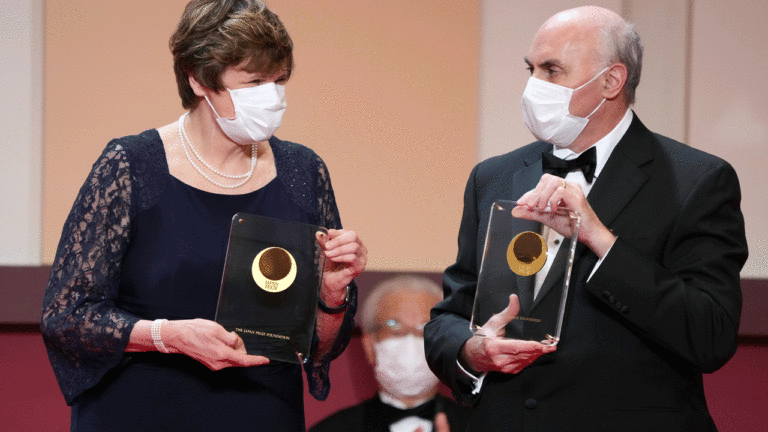Nobel Prize for Pioneering mRNA Vaccine Scientists
Two scientists, Hungarian-American Katalin Karikó and American Drew Weissman, received the Nobel Prize in Medicine for their groundbreaking work that paved the way for mRNA vaccines against COVID-19. These vaccines played a crucial role in combatting the pandemic and are now being explored for fighting cancer and other diseases.
Traditionally, vaccine production involved growing and purifying viruses. In contrast, mRNA vaccines use a small piece of genetic code to instruct the body to create specific proteins, effectively turning the body into a vaccine factory.
Initially, lab-grown mRNA faced challenges as it triggered immune responses when injected into animals. However, Karikó and Weissman discovered a subtle RNA modification that made it evade the immune system.
Katalin Karikó is the 13th woman to win the Nobel Prize in Medicine. Their collaboration, which began by chance when they met while photocopying research papers in the 1990s, has had a profound impact on global health.
The mRNA vaccines, developed in partnership with BioNTech-Pfizer and Moderna, are described as a “game changer” in combating COVID-19. Dr. Paul Hunter from the University of East Anglia credits these vaccines with saving millions of lives.
The Nobel-winning research on mRNA vaccines, combined with earlier discoveries such as a fatty coating to facilitate mRNA entry into cells and the stabilization of the coronavirus spike protein, culminated in the creation of COVID-19 vaccines.
The technology behind mRNA vaccines holds great promise for developing vaccines for diseases like Ebola, malaria, dengue, as well as vaccines for cancer and autoimmune diseases like lupus.
Both Karikó and Weissman were initially skeptical when they received the Nobel Prize news, believing it to be a prank. Their collaboration, spanning decades, has led to significant advances in medical science.
Before COVID-19, mRNA vaccines were being explored for diseases like Zika, influenza, and rabies. The pandemic has thrust this approach into the spotlight, with scientists now investigating its potential for various medical applications, including cancer treatment and allergy management.
The Nobel Prize in Medicine carries a cash award of 11 million Swedish kronor ($1 million) and will be presented at ceremonies on December 10th, the anniversary of Alfred Nobel’s death. Nobel announcements for physics, chemistry, literature, and peace are forthcoming.

